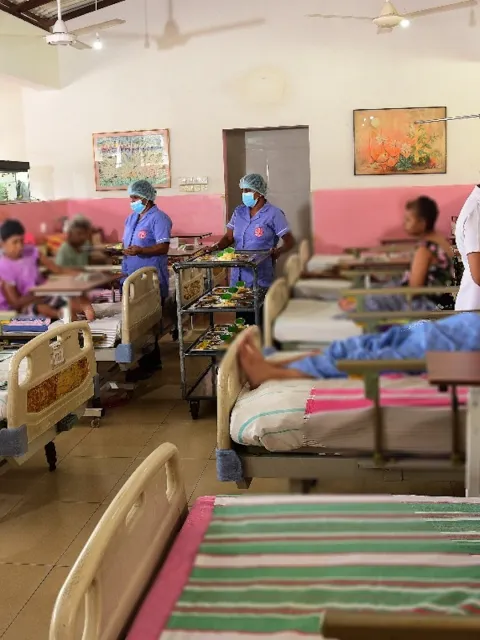The current global landscape of national cancer strategies: a new review by UICC and ICCP
The first global review since 2018 reveals progress in national cancer strategies but highlights persistent gaps in funding, equitable access, and integration of evidence-based interventions.

HIGHLIGHTS
- Progress in funding and specificity: The inclusion of financing strategies in cancer control plans rose from 7% in 2018 to 27% in 2023, and many plans now align with SMART criteria for clear targets and timelines.
- Gaps in equity and access: Disparities persist in access to screening and treatment, with half of all plans lacking radiotherapy strategies for example. Despite progress, the level of funded cancer plans remains very low (three-quarters are unfunded).
- Challenges in implementation: Limited resource allocation, delays in linking early detection to timely treatment, and insufficient evidence-based recommendations undermine the effectiveness of cancer strategies.
- Adaptation to global challenges: The COVID-19 pandemic prompted countries to revise cancer plans, but resilience and adaptability remain key priorities for future health crises.
A recent study coordinated by UICC and the International Cancer Control Partnership (ICCP), involving more than 70 international experts, analysed 156 national cancer control plans (NCCPs) and non-communicable disease (NCD) plans from countries across income levels, aims to update global knowledge on the status and content of these plans.
They address risk factors as well as access for all populations to routine screening for the early detection of certain cancers, health worker training at all levels of care, treatment, and palliative care.
Watch the video to find out about the evolution of National Cancer Control Plans (NCCPs).
As such, these strategic plans are a vital tool for governments to reduce the burden associated with the second leading cause of death worldwide – in many cases preventable. Indeed, nearly half of all cancers are associated with risk factors that are modifiable (such as tobacco use, alcohol consumption, healthy diet and physical exercise), and many lives could be further saved through vaccination against viruses that cause certain cancers (HPV, hepatitis B) and routine screening for common cancers such as breast, colorectal, and cervical cancer.
The ICCP is a group of organisations working to support country cancer control planning efforts, including several UICC members. This new study is a follow-up to the 2018 review by the ICCP and collaborators, and was conducted to reflect the rapidly changing landscape of cancer control. Significant advancements have been made in cancer research, treatment, and policy, necessitating an updated evaluation to reflect these changes.
Moreover, the COVID-19 pandemic has profoundly impacted healthcare systems globally, including cancer control efforts. A new analysis was necessary to assess how countries have adapted their NCCPs in response to the pandemic, and to identify emerging challenges and opportunities.
More than 120 countries now have active plans. This new analysis incorporated additional domains and questions to assess current trends and inform stakeholders. Researchers evaluated the plans across 13 domains representing the cancer control continuum, including introduction, data, early detection and diagnosis, treatment, and palliative care. They also assessed the extent to which plan objectives were Specific, Measurable, Achievable, Realistic, and Time-bound (SMART).
“The advancements in early detection and treatment strategies as well as a greater inclusion of financing strategies, from 7% in 2018 to 27% in 2023, are particularly commendable. The fact that nearly 75% of plans, however, still do not include strategies to fund the cancer control ambition is disappointing. The progress in the number of detailed and well-coordinated plans is also encouraging because they include clear targets and timelines, which should lead in time to better outcomes in cancer control efforts. The gaps in accessing essential medicines and treatments, on the other hand, remain a global concern and show the need for continued international collaboration.”
– Cary Adams, CEO of UICC
Key findings
Key findings revealed improvements in some areas since the 2018 review. Notably, the inclusion of financing strategies in plans increased from 7% in 2018 to 27% in 2023. This is important, as a national cancer strategy must be funded for it to be effectively implement. UICC members around the world stand ready to support the implementation these plans.
Compared to the 2018 review, the 2024 analysis also shows significant progress in the specificity and integration of NCCPs. However, persistent challenges in resource allocation and equitable access to cancer services highlight the need for continued efforts to address these gaps.
There are other challenges, particularly in connecting screening programmes to prompt access to treatment. This means that even when cancers are found early through screening, some patients still face delays or difficulties in getting the necessary treatment quickly.
For example, 90% of plans included breast and cervical cancer early detection strategies. However, half (50%) of the plans did not included radiotherapy strategies, which plays a vital role in cancer treatment by effectively killing cancer cells and shrinking tumours. And only a quarter (26%) mentioned WHO’s Model Lists of Essential Medicines, which is a register of those medications considered the most effective, safe, and necessary to meet a country’s priority health care needs. UICC has played a key role with members in getting critical cancer medicines included on this list.
The study also found that very few NCCPs included evidence-based recommendations for their strategies and interventions. Only 23% of NCCPs and 12% of NCD plans included an evidence base with references for some strategies, highlighting a significant area for improvement.
By providing current data and insights, this report aims to support countries in refining their cancer control strategies and ensuring resilience against future health crises.
Looking ahead, research suggests that cancer control plans could be strengthened by focusing on implementation strategies, securing adequate financing, improving the link between screening, early detection, and timely treatment access, and ensuring a stronger evidence base for proposed interventions. Enhancing international collaboration, increasing investment in cancer control, and leveraging technology and innovation can further improve NCCPs.
“ Only about 10% of cancer patients in low-income countries have access to radiotherapy, compared to 90% in high-income countries, with approximately 20 out of 54 countries in Africa lacking any radiotherapy facilities. The integration of radiotherapy into cancer control strategies is more crucial than ever. This review highlights both the progress made and the gaps that persist, particularly in access to this lifesaving technology.”
– Lisa Stevens, co-author and Director of the Division of Programme of Action for Cancer Control (PACT) at the International Atomic Energy Agency (IAEA), a member of ICCP
Further analysis and comparisons to 2018
- Increased Coverage: There has been an overall increase in the number of countries with NCCPs, with more low and middle-income countries developing and implementing these plans.
- Improved Specificity: Many plans have become more specific, with clear targets and timelines for interventions, reflecting the SMART criteria.
- Enhanced Integration: There is a noticeable trend towards integrating cancer control into broader health and non-communicable disease strategies, promoting a holistic approach to health.
- Resource Allocation: While resource allocation has improved in some countries, disparities remain, particularly in low-income settings where funding for cancer control is still insufficient.
- Stakeholder Involvement: Greater emphasis on involving stakeholders, including patients, healthcare providers, and civil society, in the development and implementation of NCCPs.
- Monitoring and Evaluation: Increased focus on monitoring and evaluation to track progress and make data-driven adjustments to plans.
Overview of challenges
- Resource Constraints: Many countries, particularly low-income ones, still face significant financial and logistical barriers to fully implementing their plans.
- Health System Strengthening: Improving the overall capacity of health systems to deliver comprehensive cancer care remains a critical need.
- Equity Issues: Ensuring equitable access to cancer prevention, early detection, treatment, and palliative care services for all population groups is an ongoing challenge.
- Data and Surveillance: Strengthening cancer registries and surveillance systems to provide accurate and timely data for decision-making is essential.
- Adaptability: Developing flexible and resilient cancer control plans that can adapt to emerging health threats, such as pandemics, is crucial.
“National Cancer Control Plans are an opportunity to integrate current scientific knowledge into global cancer control policies and practice. Currently only 23% of NCCPs include evidence-based recommendations, highlighting an important area where dissemination and implementation of cancer research can impact policy and ultimately cancer care. This review also highlights the need for more research to understand effective implementation strategies for cancer policies, to ensure that NCCPs are actively and equitably implemented in ways that improve cancer outcomes.”
– Satish Gopal, Director, Center for Global Health, U.S. National Cancer Institute, a co-convening member of ICCP.
For a copy of the study, please contact UICC at advocacy@uicc.org
Last update
Wednesday 10 December 2025
